How Speech Therapy Helps Children Succeed in School
Understanding the Crucial Role of Speech Therapy in Education
Speech therapy is a vital resource that supports children’s academic success and overall development by improving communication skills essential for learning and social interaction. This article explores how speech therapy, facilitated by skilled speech-language pathologists, empowers children to overcome communication challenges, enhance literacy skills, and gain confidence, setting a strong foundation for lifelong achievements.
Benefits of Speech Therapy for Academic Achievement
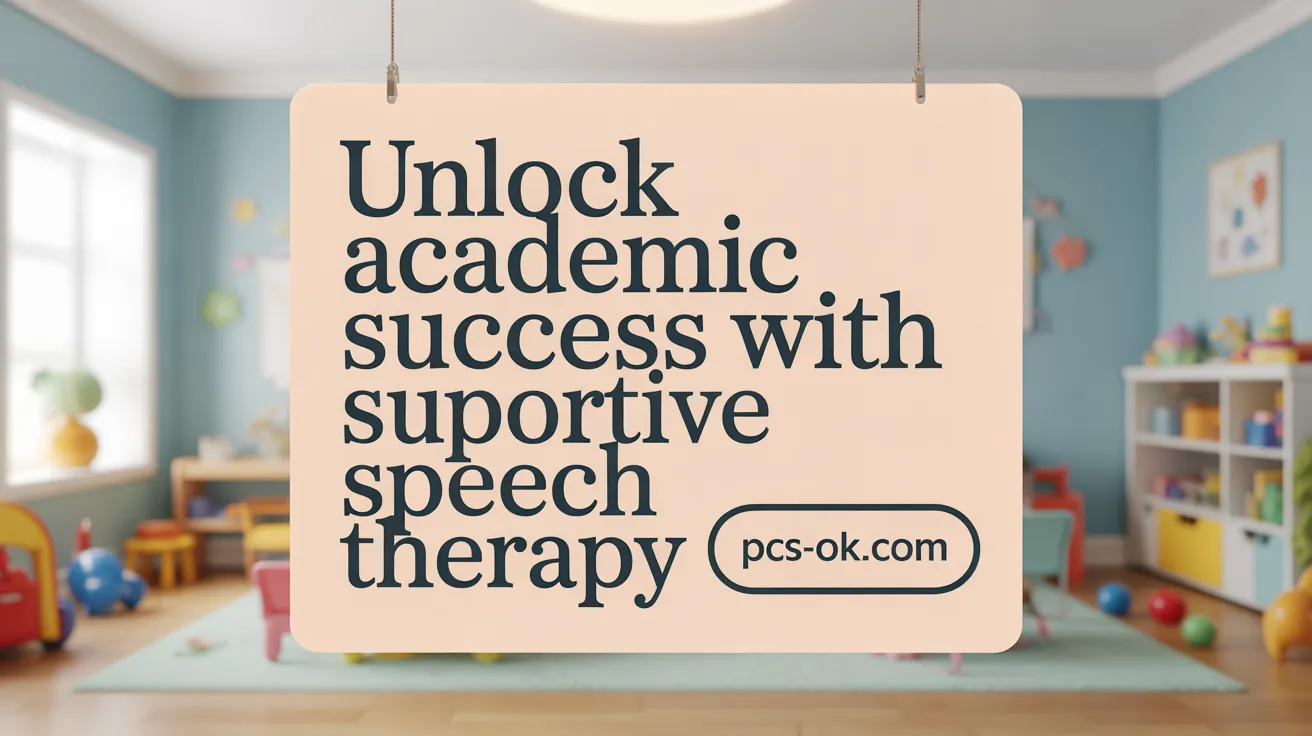
What are the benefits of speech therapy for children’s academic success?
Speech therapy plays a vital role in helping children perform better in school by improving their communication and learning skills. It helps children articulate words clearly, boosting their confidence when speaking and participating in classroom discussions.
One important benefit is the enhancement of phonological awareness, which is crucial for reading and spelling. When children develop strong phonological skills through speech therapy, they find it easier to decode words and develop good reading habits, laying a solid foundation for literacy.
In addition to language skills, speech therapy supports the development of executive functions such as memory, attention, organization, and problem-solving. These skills are essential for completing assignments, following multi-step directions, and managing classroom routines.
Improved social skills and self-esteem are also critical outcomes. Children learn turn-taking, active listening, and interpreting social cues, which promote better interactions with peers and teachers. This social confidence encourages a positive attitude toward school and learning.
Early intervention is especially impactful. When speech issues are addressed promptly, children are more likely to reach developmental milestones, reducing frustration and improving overall classroom engagement.
Moreover, speech therapy often involves collaboration with educators and parents, ensuring that therapeutic progress translates effectively into academic settings.
In summary, speech therapy helps children communicate more clearly, understand and produce language better, develop essential cognitive skills, and foster social confidence—all of which contribute directly to their success in school and beyond.
How Speech Therapy Enhances Communication Skills Crucial for Learning
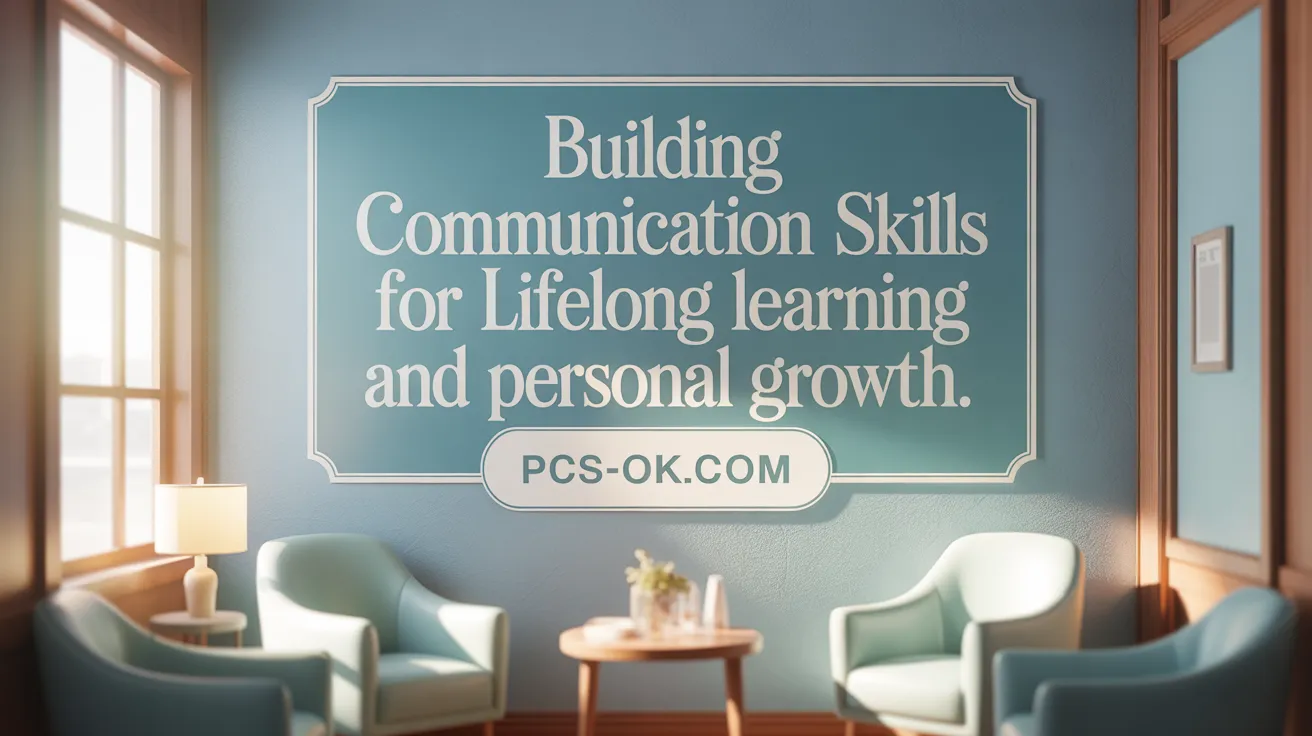
How does speech therapy support communication skills crucial for learning?
Speech therapy plays a vital role in developing essential communication abilities that are fundamental for a child’s success in school and social settings. It helps children articulate words clearly, making them easier to understand, which boosts their confidence and participation in classroom activities.
Expanding vocabulary is another important focus. Through various activities, children learn new words and phrases, enriching their language and enabling them to express themselves better. This not only improves their speaking skills but also supports reading and writing development.
Social communication skills are equally targeted in therapy. Children learn to interpret social cues, such as body language and turn-taking, which helps them build friendships and engage in cooperative learning. Developing these skills is crucial for meaningful interactions with peers and teachers.
Therapy addresses both expressive language (how children say what they want to communicate) and receptive language (how they understand what others say). Improving both areas allows children to follow instructions, comprehend lessons, and participate actively in class.
Various techniques are employed during speech therapy sessions. Modeling correct speech, using visual aids, storytelling activities, and practicing social skills foster more effective communication. These methods help children learn in engaging ways, catering to different learning styles.
The improvements gained from speech therapy extend beyond speech clarity. Enhanced language skills and social competence support overall academic success. Children become more independent, capable of expressing their needs and ideas confidently, which positively influences their school experience.
In summary, speech therapy equips children with the tools to communicate effectively, an essential ingredient for learning, social development, and building self-esteem.
The Integral Role of Speech-Language Pathologists in Schools
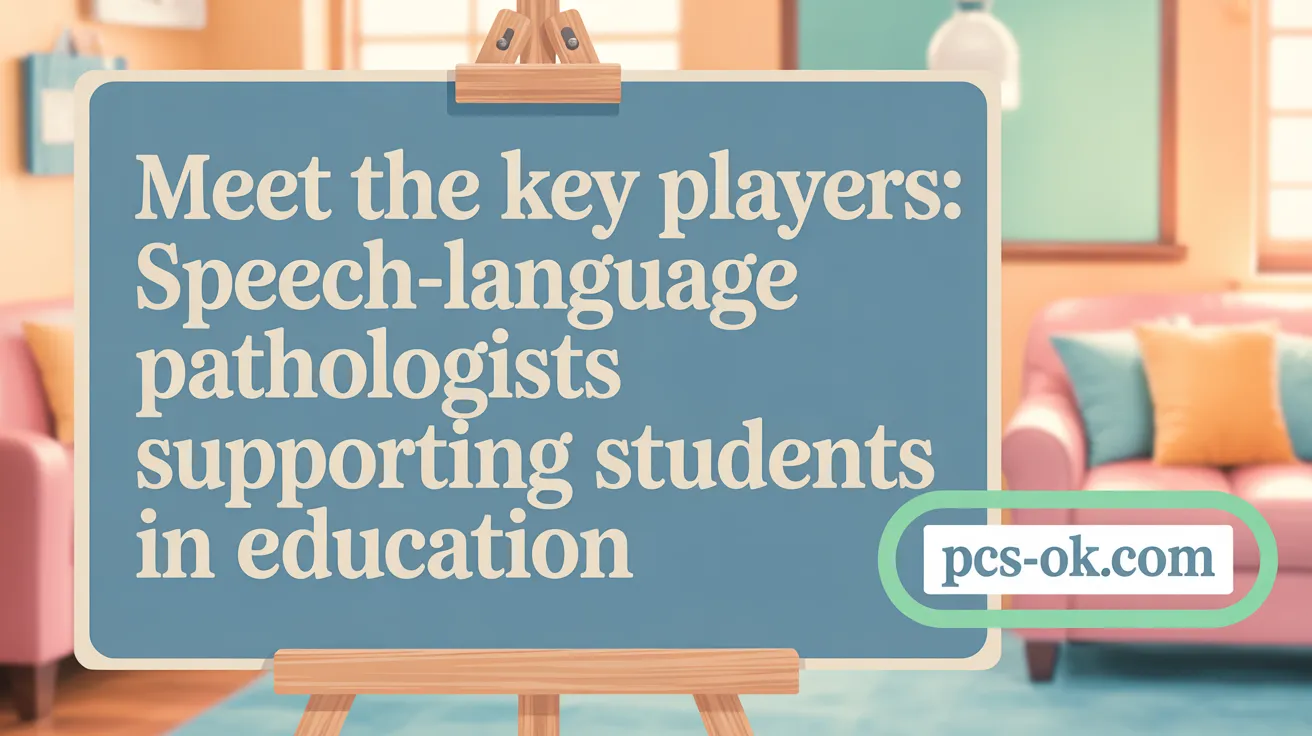
What is the role of speech-language pathologists (SLPs) in educational settings?
Speech-language pathologists (SLPs) are essential for helping students develop vital communication skills that impact learning and social interaction.
SLPs assess, diagnose, and treat a range of speech, language, and swallowing disorders. These conditions can hinder a child’s ability to understand, express, or produce speech clearly, affecting their academic performance and social relationships.
In schools, SLPs work closely with teachers, parents, and other specialists to create tailored intervention plans. These plans are often part of the child’s Individualized Education Program (IEP), designed to meet their unique communication needs.
Their work covers a broad spectrum of issues, including articulation difficulties, language delays, fluency problems like stuttering, voice and resonance concerns, and feeding or swallowing challenges. They also support culturally and linguistically diverse students to ensure equitable access to communication development.
SLPs are involved in early prevention and identification efforts—spotting issues as early as possible to provide timely support. They develop and implement classroom-based programs and provide direct therapy.
In addition, they contribute to ongoing curriculum adjustments, advocate for students facing communication barriers, and stay updated with current interventions through professional development. Their efforts ensure that students can participate fully in classroom activities, build social skills, and succeed academically.
As education evolves, SLPs also adapt their practices, including utilizing telepractice and evidence-based methods, to better serve student needs. Ultimately, their role supports students’ academic achievement, social development, and lifelong communication skills.
Impact of Speech Therapy on Social Skills and Behavior Management
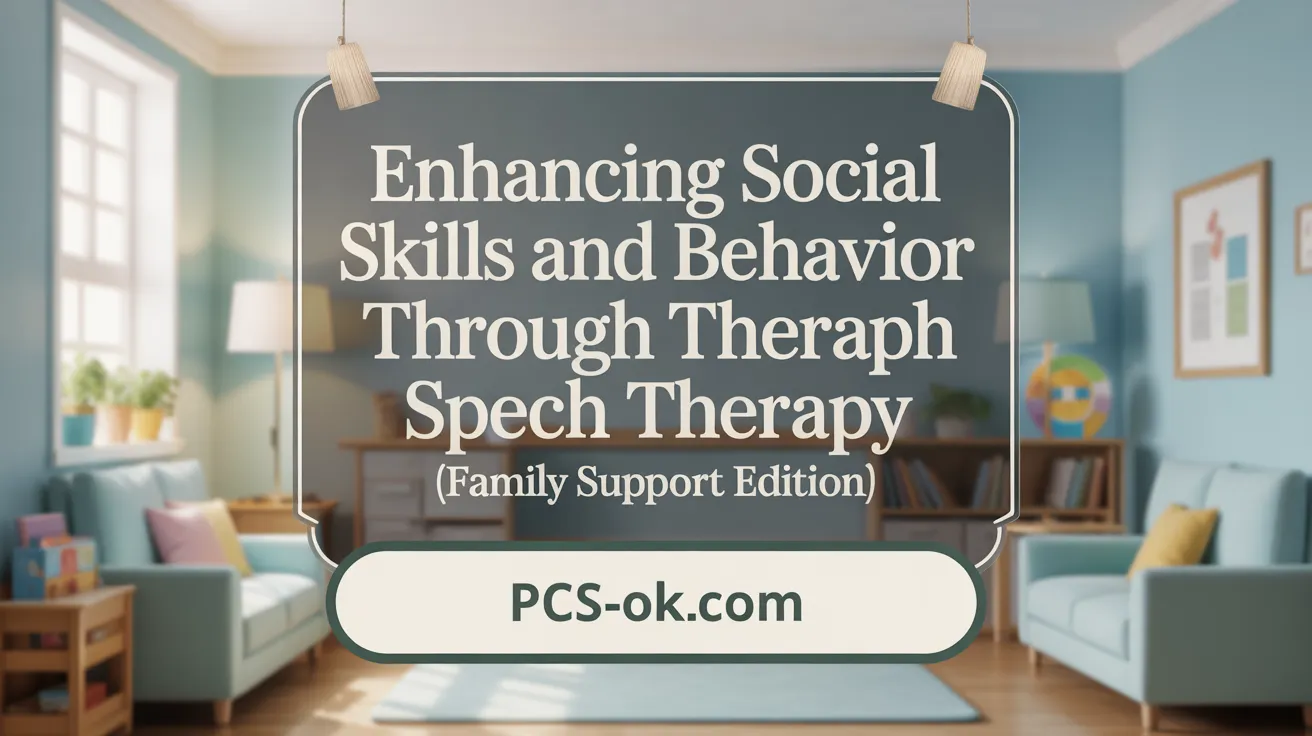
How does speech therapy impact social skills and behavior management in children?
Speech therapy plays a vital role in helping children develop essential social skills and manage their behaviors effectively. It focuses on teaching both verbal communication and understanding nonverbal cues like facial expressions, gestures, and tone of voice. These skills are crucial for making sense of social interactions and building relationships.
Children learn appropriate ways to participate in conversations, take turns, and respond to social cues through various techniques used in speech therapy. Role-playing exercises, social stories, video modeling, and visual aids are common tools that help children practice and internalize these skills.
Parental involvement is also a significant part of the process. Reinforcing learned skills during daily routines at home and school helps children improve faster and more effectively. This continuous support leads to better social integration, emotional regulation, and reduced behavioral issues.
Early intervention is especially beneficial for children with autism spectrum disorder or developmental language delays. It can result in better long-term outcomes, including fewer challenging behaviors and higher confidence.
Overall, speech therapy fosters improved social engagement, emotional growth, and behavioral control. It equips children with the necessary skills to navigate social environments successfully, which is crucial for their overall development and well-being.
Early Intervention and Innovative Techniques in Speech Therapy
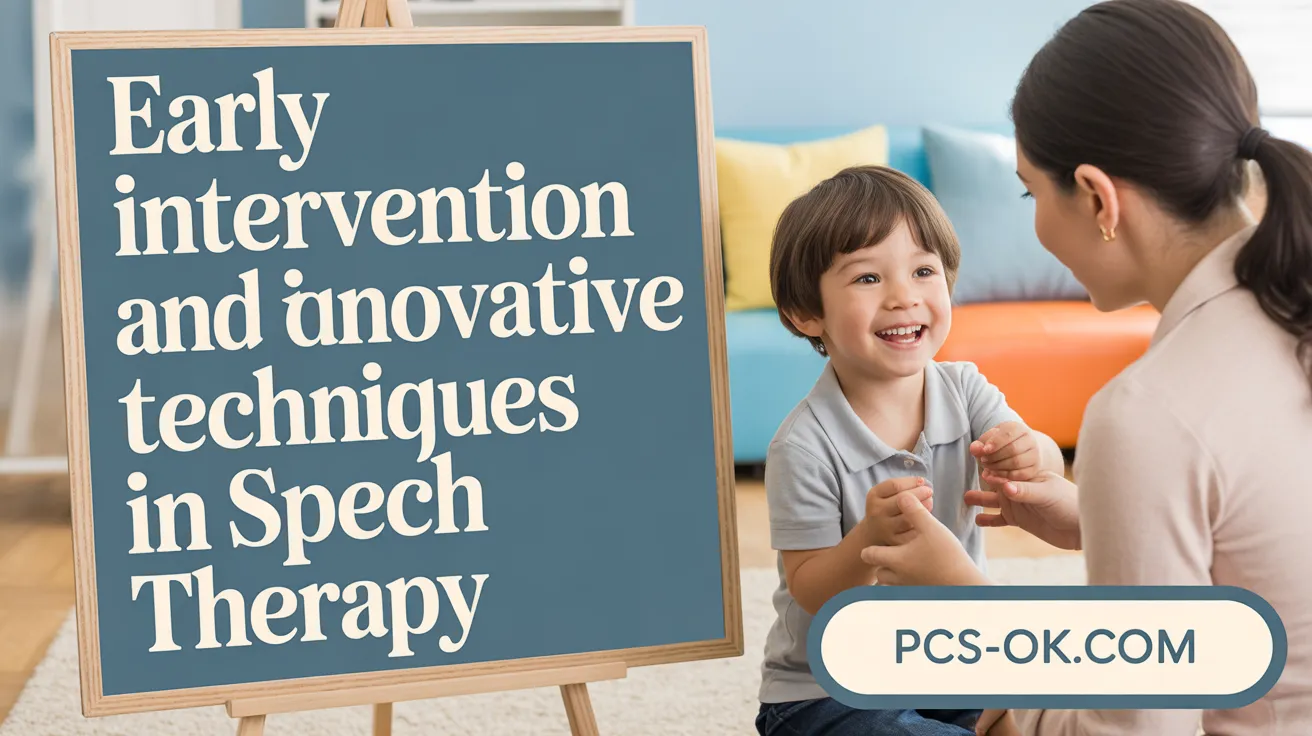
Why is early intervention important for speech therapy in preparing children for school?
Early intervention plays a vital role in supporting a child’s communication development during critical early childhood years. Addressing speech and language delays before they become ingrained maximizes the child’s ability to develop typical communication skills. It helps establish a strong foundation in language, social-emotional skills, and motor abilities essential for classroom success.
Providing support at an early stage boosts confidence, reduces frustration, and fosters positive attitudes towards learning. It also allows children to participate more fully in classroom activities and interact effectively with peers and teachers. Family involvement coupled with individualized therapy ensures that strategies align with each child’s unique needs, making progress more effective.
Leveraging the brain’s neuroplasticity during early childhood, speech therapy can alter developmental trajectories positively, increasing the chance of long-term academic and social success. Overall, early intervention significantly improves a child’s readiness for school, setting them on the path toward lifelong communication skills.
What techniques and strategies are used in speech therapy to enhance learning?
Speech therapy utilizes a diverse array of techniques and strategies tailored to meet each child’s specific needs. Key methods include articulation exercises that improve pronunciation and clarity, alongside language modeling to expand vocabulary. Visual aids and gestures support understanding and retention of new words.
Engaging, playful activities form an essential part of therapy. Children might participate in vocabulary games, storytelling, singing, and role-playing activities that make learning fun and relevant. Play-Based Therapy, DIR/Floortime, and programs like Hanen focus on child-led interactions, fostering natural language growth within meaningful contexts.
Some approaches incorporate tactile cues, such as PROMPT therapy, to help coordinate speech movements. For children with more severe impairments, augmentative and alternative communication (AAC) tools—such as picture boards or speech-generating devices—offer vital support.
By combining behavioral, play-based, and technological strategies, speech therapists create customized plans that optimize learning and development. These techniques help improve not only speech but also social communication, readiness, and confidence—building blocks for academic achievement.
| Technique/Strategy | Purpose | Additional Details |
|---|---|---|
| Articulation Exercises | Pronunciation & clarity | Repetition and mouth movement practice |
| Visual Aids | Comprehension support | Use images, gestures, and written cues |
| Play-Based Activities | Motivation & natural learning | Games, role-playing, storytelling |
| Tactile Cues (PROMPT) | Speech motor control | Tactile input to assist movement |
| AAC Devices | Severe speech impairments | Picture boards, speech-generating tech |
How does family involvement and play-based approaches enhance therapy?
Family participation is crucial in translating therapy gains into everyday communication. Engaging parents and caregivers allows them to continue practice at home, reinforcing skills learned during sessions.
Play-based and multisensory approaches tap into children’s natural interests, making therapy fun and less stigmatizing. Using movement, sensory activities, and interactive games, children are motivated to communicate, fostering a positive learning environment.
Together, these methods promote generalization of skills across settings, increase child engagement, and strengthen parent-child relationships. When families are active participants, therapy outcomes improve, leading to more meaningful and lasting progress.
Speech Therapy: A Foundation for Lifelong Success
Speech therapy is a transformative tool that equips children with the communication skills necessary for academic achievement and social integration. By addressing speech and language disorders early and employing evidence-based strategies, speech-language pathologists help children overcome barriers to learning, foster confidence, and develop vital social abilities. Collaboration among educators, families, and therapists ensures personalized support that maximizes each child’s potential. Ultimately, speech therapy not only enhances literacy and classroom performance but also nurtures emotional well-being and independence, laying the groundwork for success throughout schooling and beyond.
References
- How Speech Therapy can Help Academic Performance
- 10 Key Benefits of Speech Therapy For Kids
- Speech and Language Services in Schools
- Speech Pathologists Play Important Role in Students’ …
- 5 Benefits of Speech Therapy | September 06, 2023
- The Benefits of Speech Therapy for Children: A Parent’s …
- Speech Therapy: What It Is & How It Works
- Speech Pathology in Schools – Boosting Student Success
